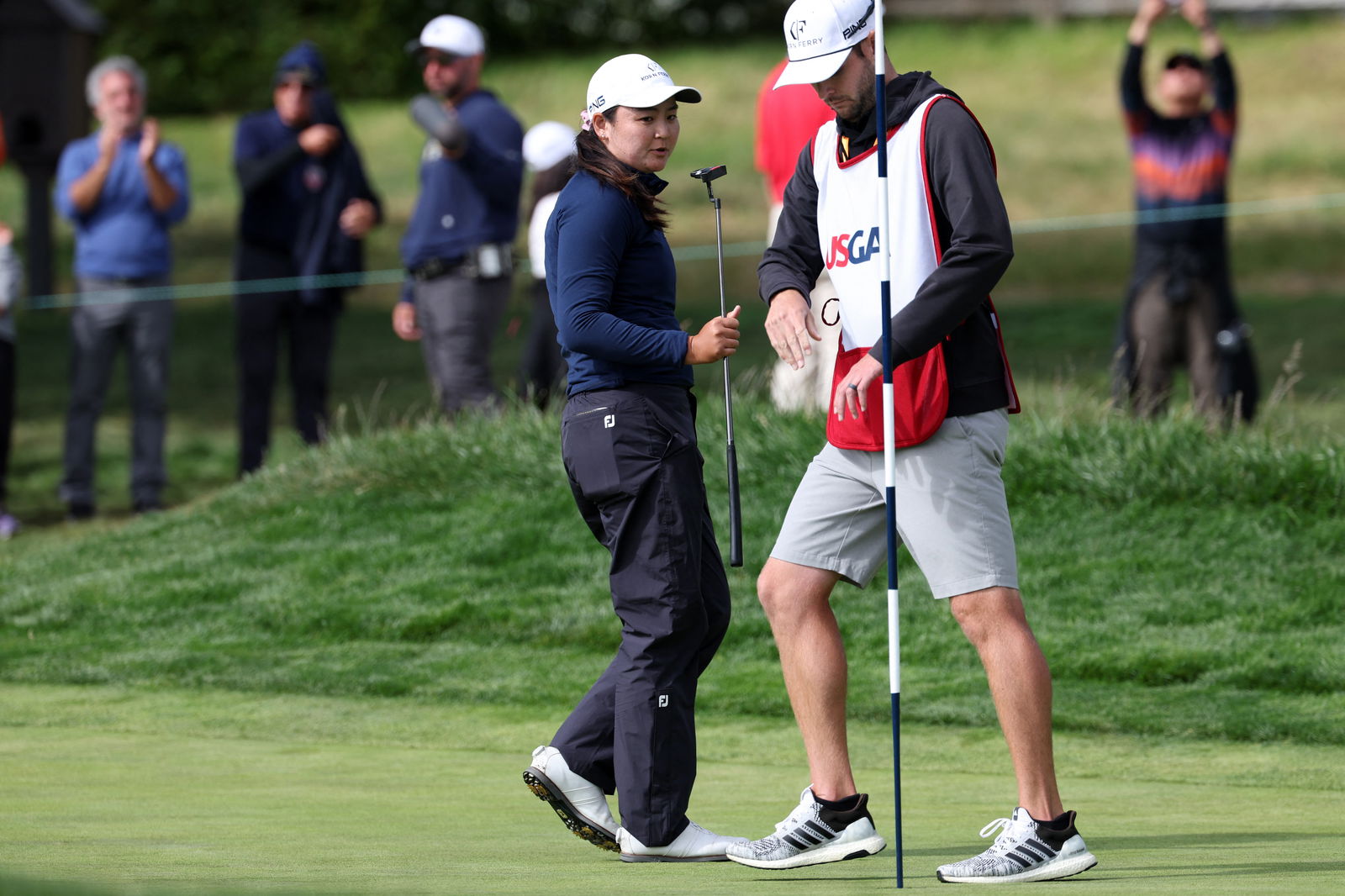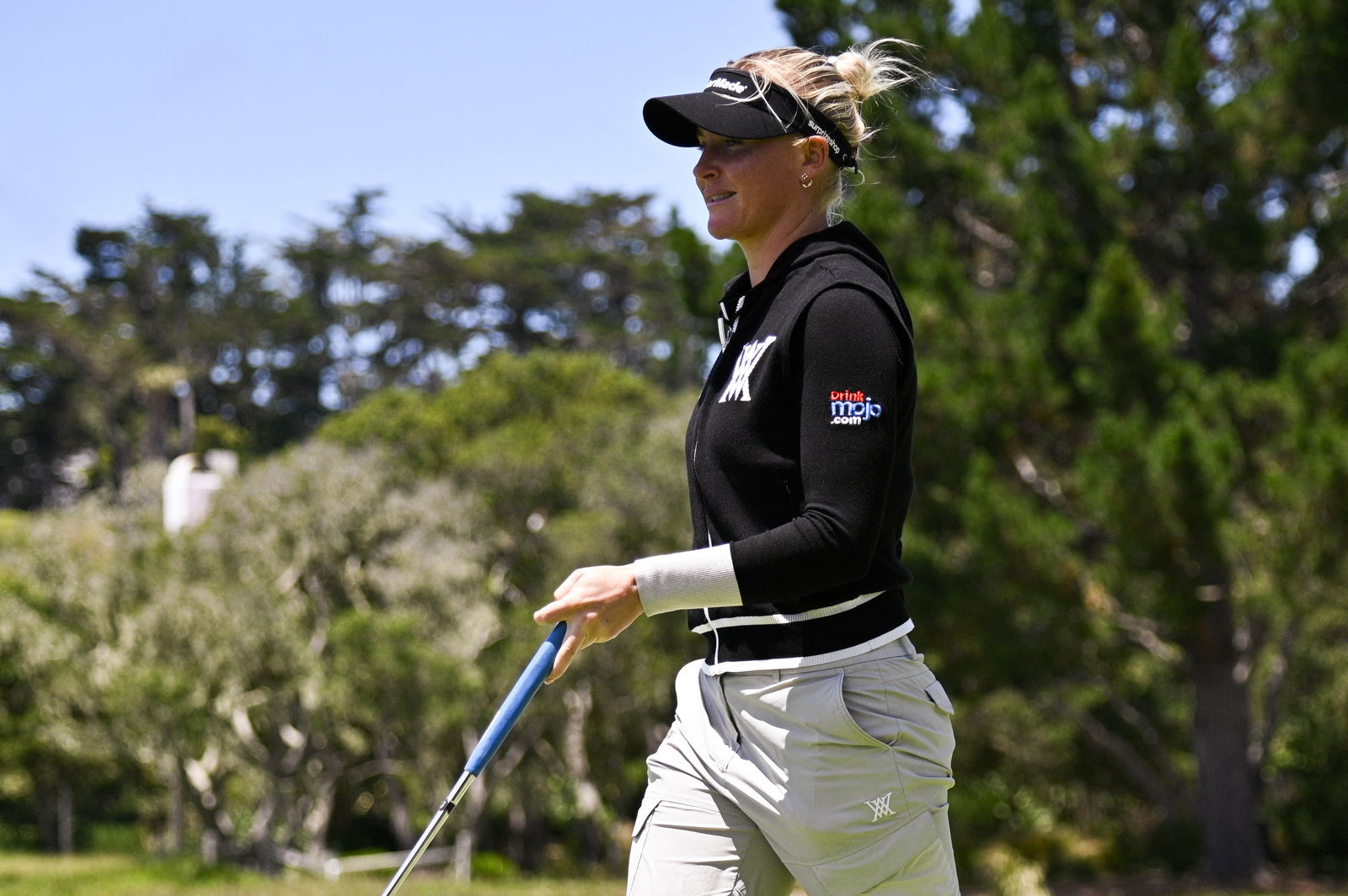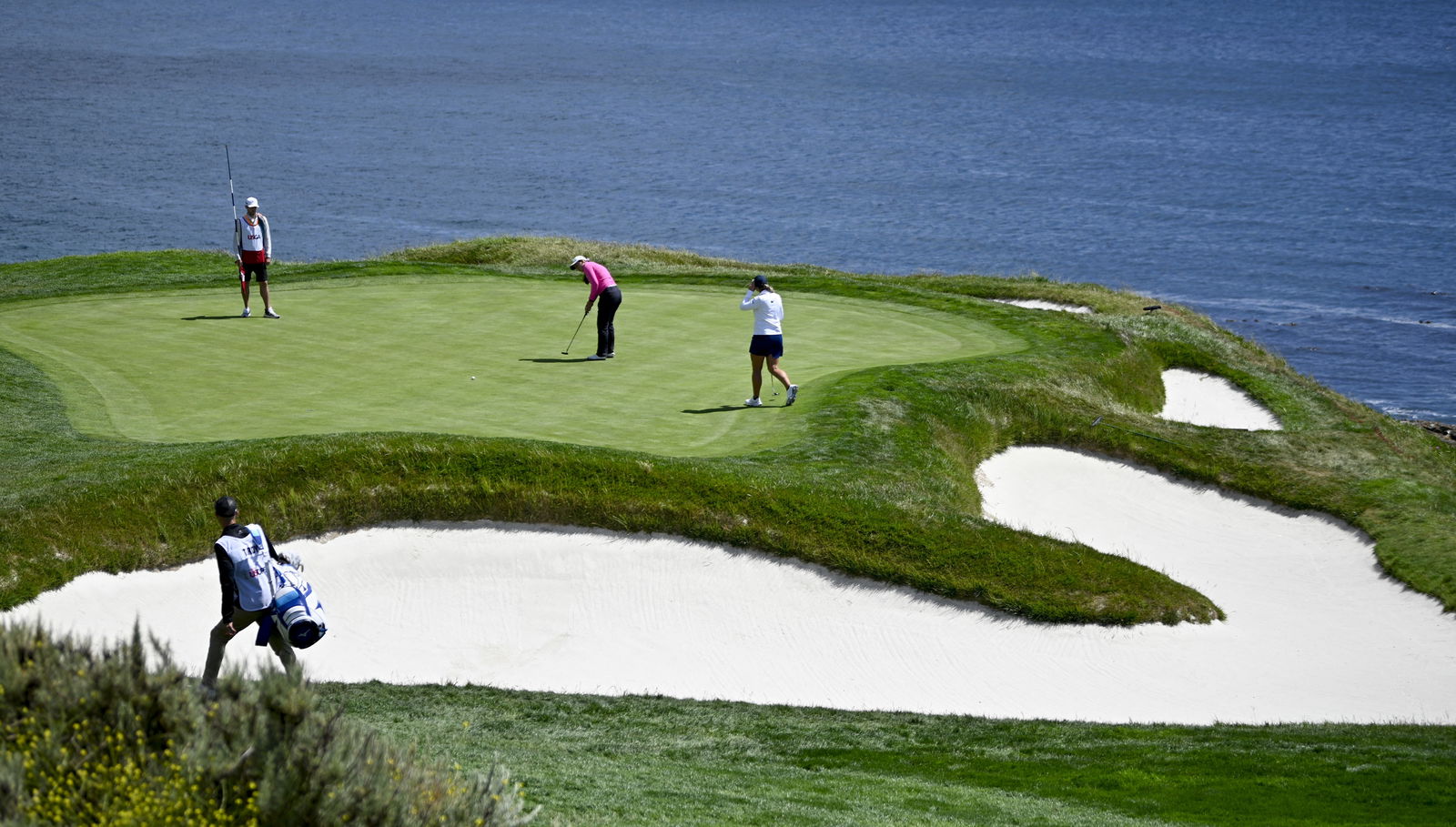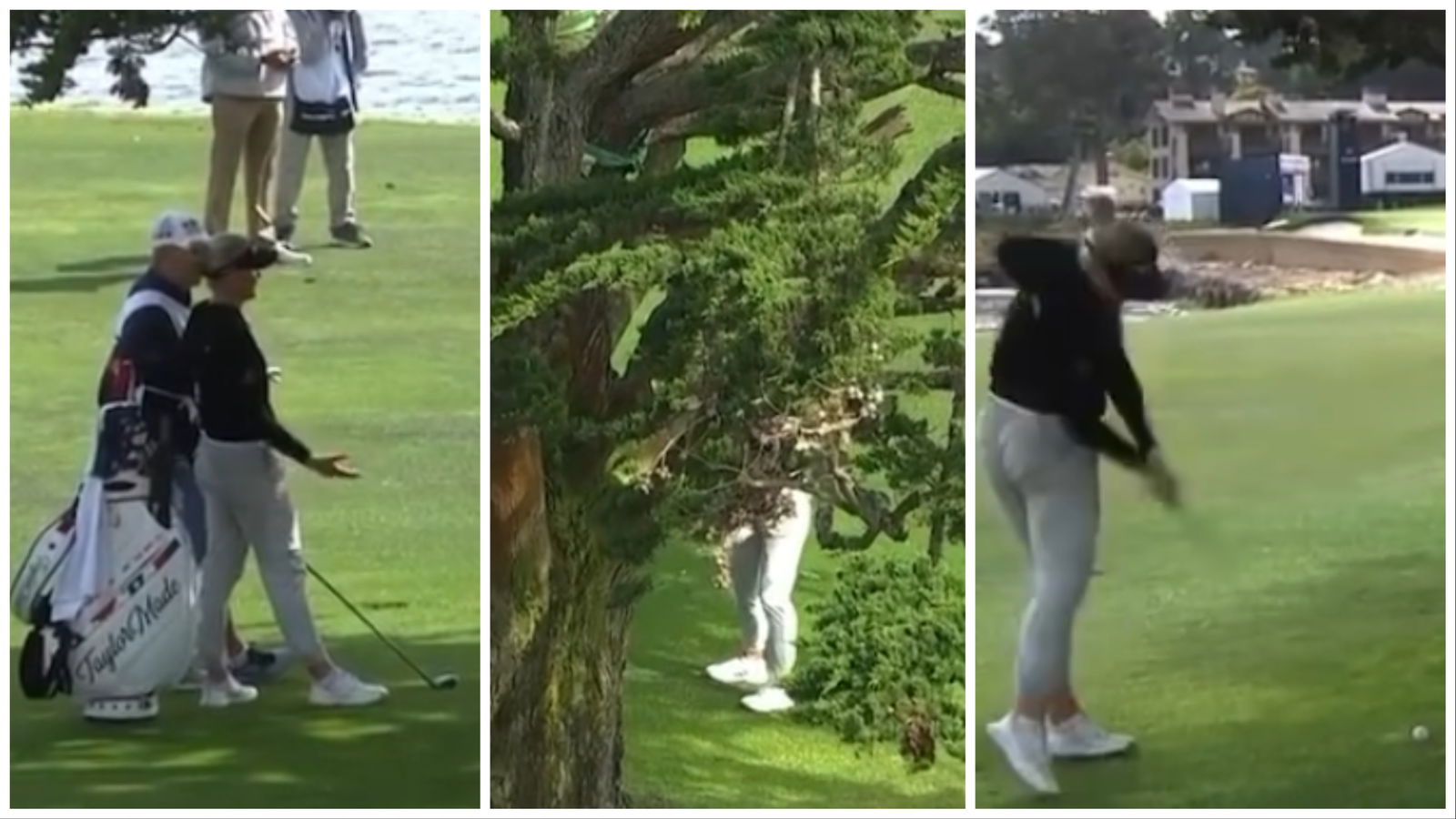US Women's Open winner involved in slow-play drama during final round
Allisen Corpuz was nearly penalized at the US Women's Open on Sunday.

Allisen Corpuz shot a final-round 3-under par 69 on Sunday to win the 78th US Women's Open at Pebble Beach, but it wasn't without a bit of drama.
Corpuz, 25, entered Sunday's final one-stroke back of Japan's Nasa Hataoka, who led at 7-under par through 54 holes.
The two were paired together for the final group Sunday to tee off at Pebble Beach Golf Links.
However, per Sports Illustrated Golf's Gabrielle Herzig, a bit of drama unfolded as the pair made their way down the iconic course's back nine holes.
By the time the pairing reached the mid-way point of their round, Corpuz had moved to 7-under par to match Hataoka.

But when the pair then made it to the par-4 11th, they were put on the clock for slow play.
Two holes later, at the par-4 13th, the eventual US Women's Open winner was given an official warning by a USGA rules official for exceeding the allowed time per shot.
If it happened again, Corpuz would receive a one-stroke penalty.
Luckily, by the next hole the pair had been taken off the clock and Corpuz was not penalized for slow play.
She went on to card a 3-under 69 to win the tournament by three strokes over Charley Hull and Jiyai Shin.

The victory marked both her first LPGA Tour win and major championship title.
“We were behind, and I should have known the rule that it’s going to be a stroke penalty beforehand,” Corpuz's caddie, Jay Monahan said, per Herzig. “I don’t know if that was in some of our paperwork leading up to the week, because typically we just get fines for slow play. So yeah, it was eye-opening.”
“Was it warranted? Probably, because we were playing a little bit slow, but it’s tough,” he added.
Slow pace of play has been a main story at the men's major championships so far this year, after Brooks Koepka accused Viktor Hovland and Patrick Cantlay of taking too long in the group ahead of he and eventual winner Jon Rahm at the Masters in April.

